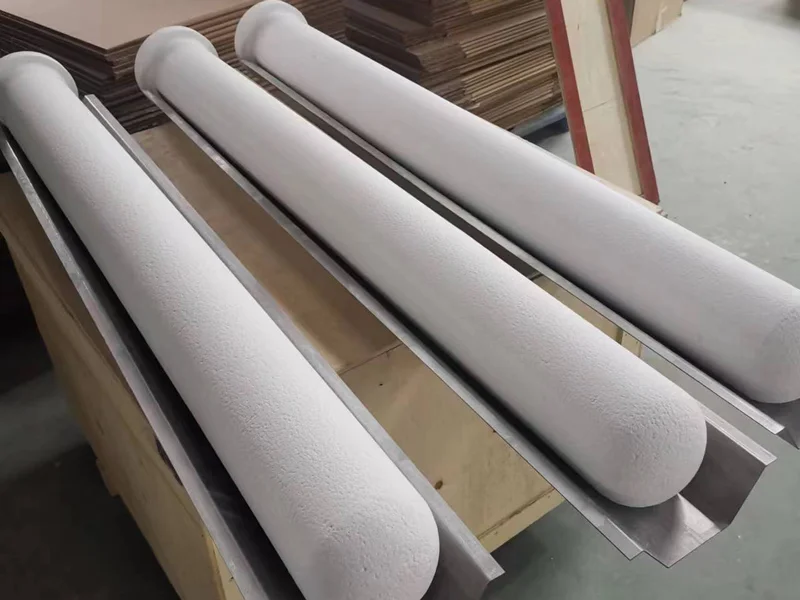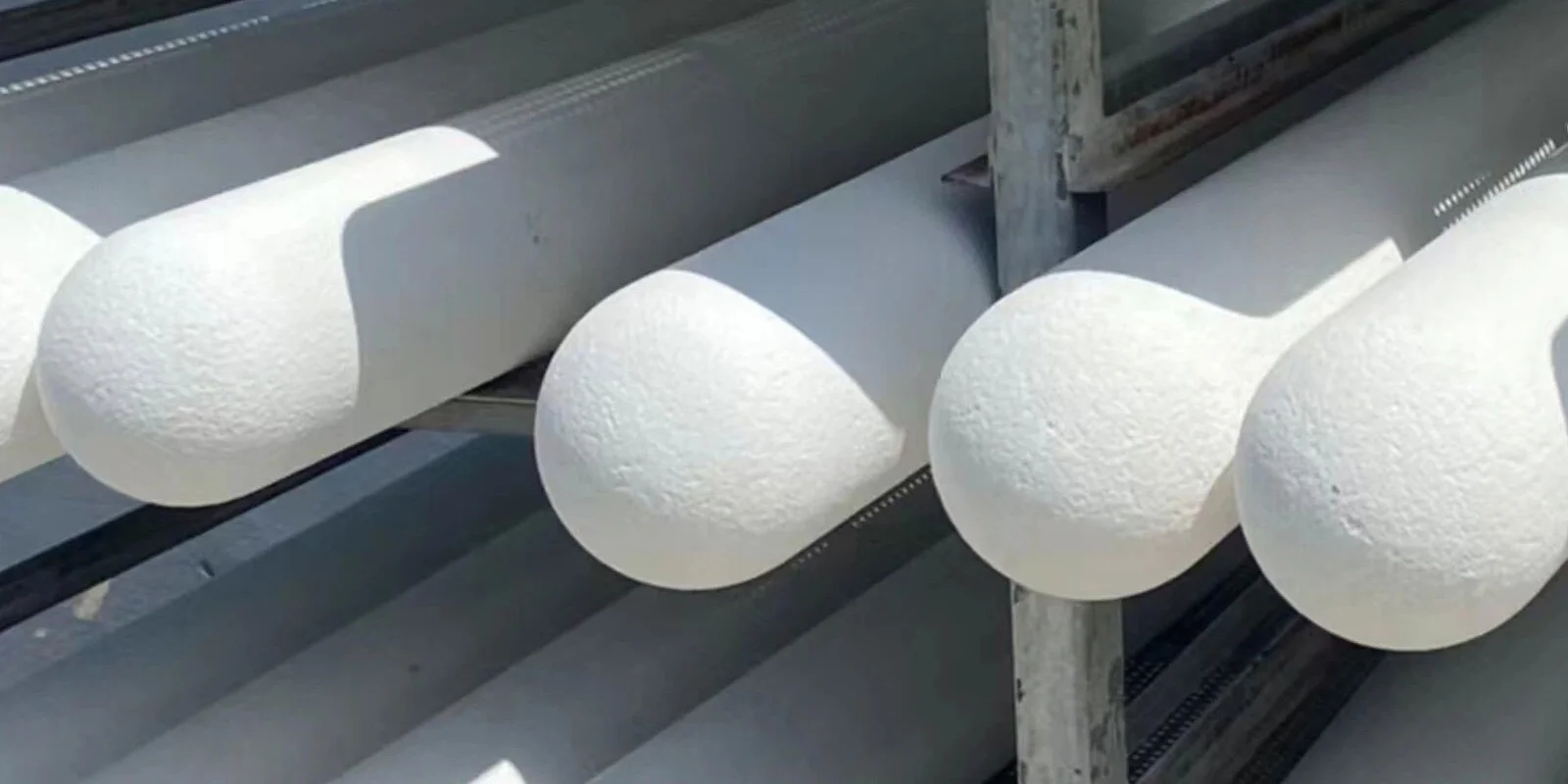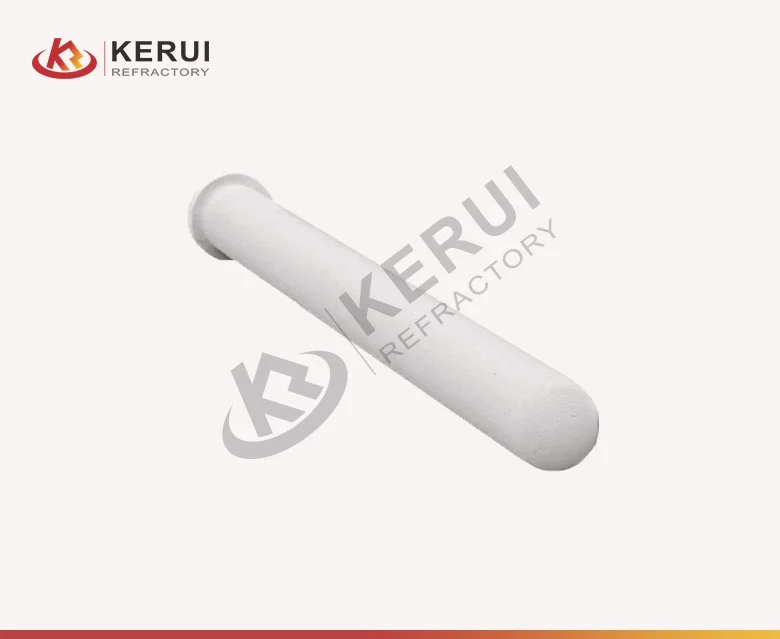Ceramic fiber tubes represent a critical component in various industries, providing exceptional thermal insulation, mechanical strength, and chemical stability in high-temperature environments. From furnace linings to exhaust systems, these specialized tubes offer a myriad of benefits, contributing to energy efficiency, equipment reliability, and process optimization. In this article, we delve into the diverse advantages of ceramic fiber tubes and their significance across a range of industrial applications.
Understanding Ceramic Fibers
Ceramic fiber tubes are cylindrical structures crafted from high-purity alumina-silica ceramic fibers, often reinforced with inorganic binders and additives for enhanced performance. This ceramic fiber tube boasts excellent thermal insulation properties, low thermal conductivity, and resistance to thermal shock and chemical corrosion, making them indispensable in environments subjected to extreme temperatures and harsh conditions.
Advantages of Ceramic Fiber Tubes
Superior Thermal Insulation
Ceramic fiber tubes excel in thermal insulation, effectively minimizing heat transfer and reducing energy consumption in industrial processes. Their low thermal conductivity ensures optimal temperature control, improving process efficiency and product quality.
Lightweight and Easy to Handle
Being lightweight and flexible, ceramic fiber tubes are easy to handle and install, reducing labor costs and installation time. Their versatility allows for seamless integration into various equipment and systems without adding significant weight or structural strain. We also produce ceramic fiber rope.
High Temperature Resistance
Ceramic fiber tubes exhibit exceptional resistance to high temperatures, withstanding continuous operating temperatures ranging from 1000°C to 1600°C (1832°F to 2912°F) depending on the specific grade and application. This makes them ideal for use in furnaces, heaters, and thermal processing equipment.
Thermal Shock Resistance
The inherent thermal shock resistance of ceramic fiber tubes enables them to withstand rapid temperature fluctuations without compromising structural integrity. This property is crucial in applications involving cyclic heating and cooling, ensuring long-term durability and reliability.
Chemical Stability
Ceramic fiber tubes offer excellent chemical stability, resisting corrosion from acids, alkalis, and other harsh chemicals encountered in industrial processes. This resistance helps prolong equipment lifespan and minimize maintenance requirements, resulting in cost savings over time.
Uniform Thermal Performance
Ceramic fiber tubes feature uniform thermal properties throughout their structure, ensuring consistent thermal performance across various operating conditions. This uniformity contributes to process stability and product quality in applications where temperature control is critical. We also produce high temperature fire cement.

Applications of Ceramic Fiber Tubes
Furnace and Kiln Linings: Ceramic fiber tubes are widely used to line industrial furnaces, kilns, and ovens, providing thermal insulation and heat containment to optimize energy efficiency and product quality.
Exhaust Systems: In automotive and industrial exhaust systems, ceramic fiber tubes serve as insulation barriers, minimizing heat loss and enhancing exhaust gas temperature management for improved emissions control and fuel efficiency.
Heat Treatment Equipment: The thermal refractory find application in heat treatment furnaces, annealing ovens, and quenching tanks, where they facilitate precise temperature control and uniform heating for metallurgical processes.
Insulation Jackets and Covers: Ceramic fiber tubes are utilized to fabricate insulation jackets and covers for pipes, valves, and equipment in petrochemical plants, power plants, and refineries, providing thermal insulation and personnel protection.

Conclusion
Ceramic fiber tubes stand as indispensable components in high-temperature industrial applications, offering unparalleled thermal insulation, mechanical strength, and chemical stability. Their numerous advantages, including superior thermal performance, lightweight construction, and resistance to thermal shock, make them a preferred choice across diverse industries seeking to optimize energy efficiency, enhance equipment reliability, and ensure process integrity in demanding operating environments.








 Wechat Us
Wechat Us